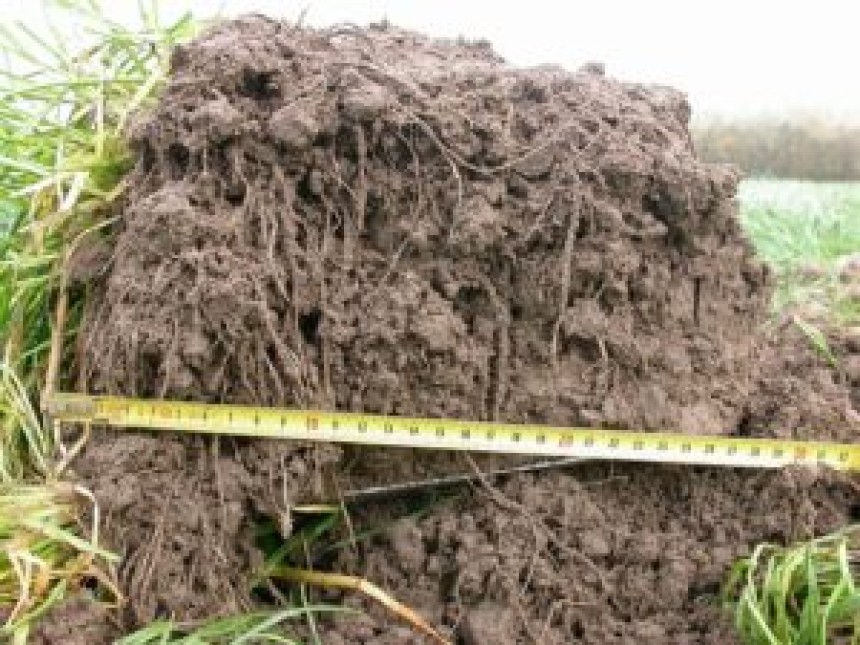
Exploring the Impact of Soil Research on Broccoli Seed Growth and Yield
Soil health is the foundation of thriving agriculture. Optimizing soil conditions can make the difference between a mediocre harvest and a bountiful one for a crop like broccoli, which is prized for its nutritional value and versatility. Recent advances in soil research have revolutionized how farmers approach broccoli seed growth and yield. Farmers can make informed decisions that boost productivity while maintaining environmental sustainability by understanding how soil properties influence plant development. This blog delves into the critical findings from soil research and how they can be applied to enhance broccoli seed growth and yield.
Soil health is the foundation of thriving agriculture. Optimizing soil conditions can make the difference between a mediocre harvest and a bountiful one for a crop like broccoli, which is prized for its nutritional value and versatility. Recent advances in soil research have revolutionized how farmers approach broccoli seed growth and yield. Farmers can make informed decisions that boost productivity while maintaining environmental sustainability by understanding how soil properties influence plant development. This blog delves into the critical findings from soil research and how they can be applied to enhance broccoli seed growth and yield.
Understanding the Role of Soil in Broccoli Growth
Soil is more than just a medium for anchoring plants; it plays an active role in the nutrient exchange, water retention, and microbial activity that affect plant health. Broccoli, being a nutrient-dense vegetable, has specific requirements for healthy growth. The right soil conditions can significantly improve germination rates, plant vigor, and final crop yield.
When you purchasebroccoli seeds, you must consider the soil where you’ll plant them. Whether working with clay-heavy soils or loamy, nutrient-rich ground, tailoring your soil management practices can have a lasting impact on your crop’s success. Soil research offers practical insights into optimizing conditions for broccoli, from pH levels to organic matter content and microbial interactions.
Key Soil Factors Influencing Broccoli Seed Growth
Recent studies have identified several key soil factors directly influencing broccoli seed growth and yield. These include soil pH, nutrient levels, organic matter content, and texture. Let’s explore how each of these elements plays a role in cultivating broccoli.
1. Soil pH and Nutrient Availability
Soil pH is a critical factor in determining nutrient availability to plants. Broccoli thrives in slightly acidic soil, with an ideal pH range between 6.0 and 7.0. If the soil is too acidic or alkaline, essential nutrients like nitrogen, phosphorus, and potassium may become unavailable to the plant, affecting growth and yield.
Research shows that adjusting soil pH with lime or sulfur can significantly improve broccoli seed germination and plant development. Regular soil testing is recommended to monitor pH levels and make necessary adjustments before planting.
Critical insight: Maintaining a balanced pH in your soil ensures that broccoli plants can access the nutrients they need to thrive.
2. Organic Matter: The Foundation of Healthy Soil
Organic matter is essential for maintaining soil structure, improving water retention, and fostering beneficial microbial communities. Studies indicate that soils rich in organic matter support healthier, more resilient broccoli plants. Organic matter helps prevent soil compaction, ensuring roots have room to grow and access vital nutrients and water.
Farmers can increase the organic matter content of the soil by incorporating compost, cover crops, or manure. These practices boost broccoli yields and contribute to long-term soil health.
Two benefits of high organic matter content:
- Improved soil aeration and drainage, preventing waterlogging and root diseases.
- Enhanced microbial activity breaks down nutrients and makes them available to plants.
“Healthy soil equals healthy plants. The foundation of a strong crop starts below the surface.”
3. Soil Texture and Its Effect on Root Development
Soil texture—whether sandy, clayey, or loamy—has a direct impact on broccoli seed growth. Loamy soils, which have a balance of sand, silt, and clay—are considered ideal for broccoli because they provide good drainage while retaining enough moisture for healthy root development. Sandy soils may drain too quickly, dehydrating the plant, while clay soils can hold too much water, leading to root rot.
Recent soil research has shown that amending soil texture by adding organic matter or other materials like perlite can improve conditions for broccoli growth. Adding organic matter can help retain moisture in sandy soils, while it can improve drainage and prevent compaction in clay soils.
The Role of Soil Microbes in Broccoli Growth
One of the most exciting developments in soil research is the growing understanding of microbes' role in plant health. Soil microbes, including bacteria, fungi, and other microorganisms, form symbiotic relationships with plants, helping them absorb nutrients more efficiently. For broccoli, certain beneficial microbes can improve nutrient uptake, protect against diseases, and even promote faster growth.
1. Mycorrhizal Fungi and Nutrient Uptake
Mycorrhizal fungi are one of the most studied groups of beneficial soil organisms. These fungi form a symbiotic relationship with plant roots, extending the root system and helping the plant access nutrients, particularly phosphorus. Research has shown that inoculating broccoli seeds or soil with mycorrhizal fungi can significantly improve plant growth, especially in nutrient-poor soils.
By expanding the root’s reach, mycorrhizal fungi also help broccoli plants better tolerate drought conditions, as they can access water from deeper in the soil.
2. Rhizobia and Nitrogen Fixation
Nitrogen is a vital nutrient for broccoli growth, and recent research has highlighted the role of rhizobia, nitrogen-fixing bacteria, in enhancing soil nitrogen levels. While rhizobia is commonly associated with legumes, studies have shown that rotating broccoli with leguminous cover crops can boost nitrogen levels in the soil, promoting better growth and yield in subsequent broccoli crops.
Farmers interested in sustainable, eco-friendly farming practices can use this knowledge to reduce the need for synthetic fertilizers by encouraging natural nitrogen fixation in their soil.
Sustainable Soil Management for Higher Broccoli Yields
Soil research findings benefit crop growth and provide valuable insights into sustainable farming practices. By improving soil health through sustainable management techniques, farmers can boost broccoli yields while reducing their environmental footprint.
1. Crop Rotation and Soil Health
Crop rotation is a time-tested practice that improves soil fertility and disrupts pest and disease cycles. Recent studies have confirmed that rotating broccoli with other crops, particularly legumes or cover crops, can enhance soil structure, boost nitrogen levels, and prevent nutrient depletion.
Rotating broccoli with nitrogen-fixing crops such as beans or peas allows the soil to recover and accumulate essential nutrients, leading to better yields in the next growing season. Cover crops like clover can also protect the soil from erosion during the off-season while adding organic matter.
2. Reduced Tillage for Soil Preservation
Reduced or no-till farming has gained popularity as a way to preserve soil structure and reduce erosion. Research shows that reducing tillage can enhance soil moisture retention and protect beneficial microbial communities for broccoli. By disturbing the soil less, farmers can maintain its natural structure, which is essential for root development and nutrient absorption.
Incorporating mulch or cover crops can further reduce the need for tillage by suppressing weeds and protecting the soil from drying out.
The Future of Broccoli Farming: Soil Research Leads the Way
As soil research continues to evolve, the future of broccoli farming looks bright. With new insights into soil health, nutrient management, and microbial interactions, farmers can make informed decisions that improve their crop yields while promoting sustainable practices. Farmers can reduce the need for chemical inputs, improve water use efficiency, and ensure long-term productivity by focusing on soil health.
Soil health is increasingly recognized as a cornerstone of eco-friendly farming, and broccoli farmers who invest in soil improvement are likely to see better results in terms of both yield and quality.
Embracing Soil Science for Successful Broccoli Cultivation
The latest advancements in soil research provide broccoli farmers with powerful tools to optimize growth and yield. From understanding soil pH and texture to leveraging the benefits of microbes, these insights allow for more sustainable and productive farming practices. Whether you’re a commercial grower or a home gardener, paying close attention to your soil’s health will ultimately lead to a more robust and successful broccoli crop.
This Article is written to accelerate businesses. JOIN The Community Now! Fuel your business success with Grow Media Digital! 🚀 Tailoring expert strategies, from SEO to social media, ensure a perfect fit for your needs. With an innovative approach, they stay ahead of trends, guaranteeing measurable growth. Visit growmedia.digital to bring your business to new heights.





